Stax Songwriter Series
We Three (Bettye Crutcher, Raymond Jackson & Homer Banks)
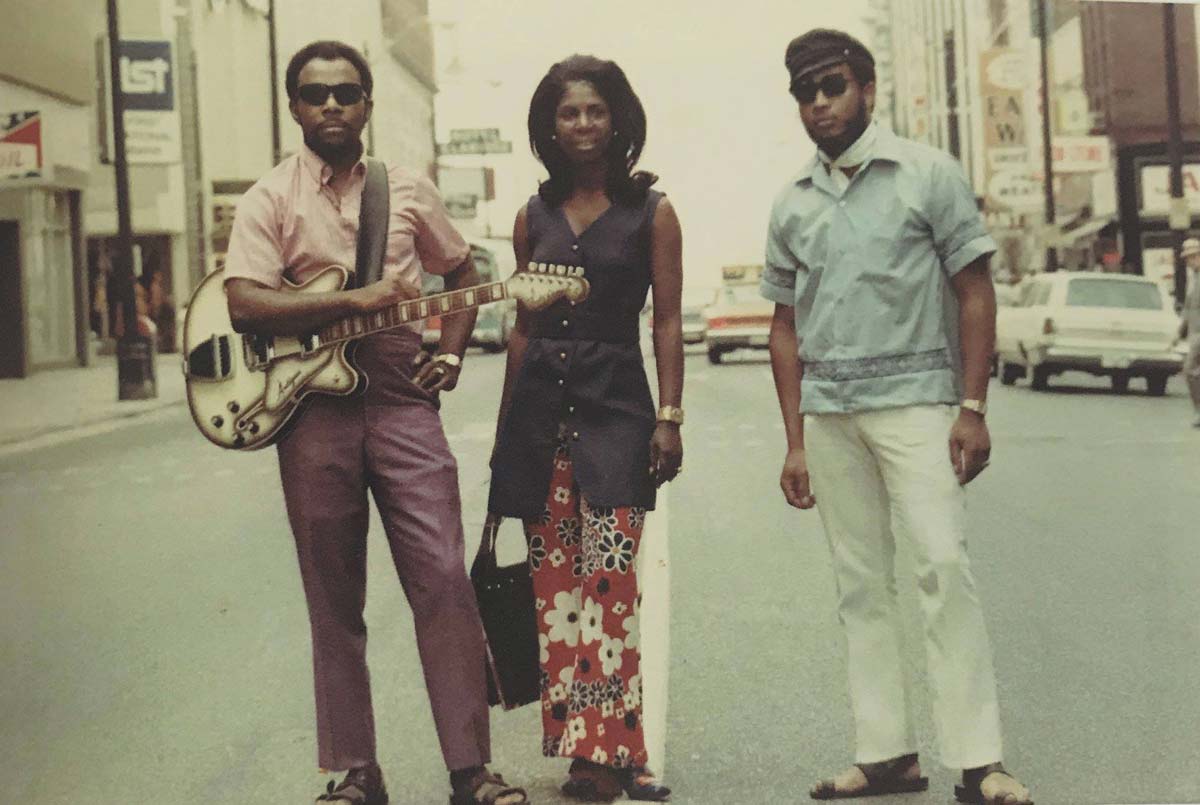
Raymond Jackson, Bettye Crutcher and Homer Banks
Among the powerhouse songwriting talents of Stax’s history, the likes of Bettye Crutcher, Raymond Jackson, and Homer Banks delivered sensational contributions to the label’s roster of artists as individuals. The three scribes are most noted for their brief period as a songwriting team, credited affectionately as “We Three,” when working as a trio.
During that stretch as a collective, Banks, Jackson, and Crutcher made their stamp within the Stax Organization as proven innovators with the overtly risqué single “Who’s Making Love,” released by Johnnie Taylor, in 1968. The track would become Stax’s best-selling single to that point.
Years before the group would gel within the halls of Stax, childhood friends Raymond Jackson and Homer Banks built their rapport as The Soul Consolidators, singing both doo-wop at local talent shows along with gospel in church. The young men developed a synergy as songwriters, often performing their original songs.
After Banks entered the army following high school graduation, he formed a singing group in the service, singing lead with The Shades. Upon his return to Memphis in 1964, Banks, convinced he’d be able to make an impression in the burgeoning soul scene, recorded a single for Genie Records, “Lady of Stone,” backed with “Sweetie Pie,” in 1965. Isaac Hayes and David Porter produced both sides of the 45 for the short-lived label, which they co-founded during a break from Stax.
Banks’ association with Porter and Hayes’ brief defecting from the Stax stable complicated any chance Banks had to find favor with Jim Stewart while shopping material to the Stax co-founder; however, Estelle Axton took a liking to Banks and offered him a job at the Satellite Record Shop. There, she aided Banks in his songwriting craft, allowing him to study hit products in the shop and workshop his ideas in proximity to the Stax studio. With fellow store clerks, he worked up “Double Up,” a single that caught the attention of Stewart and David Porter, who began prepping the song for an upcoming recording session with Sam & Dave.
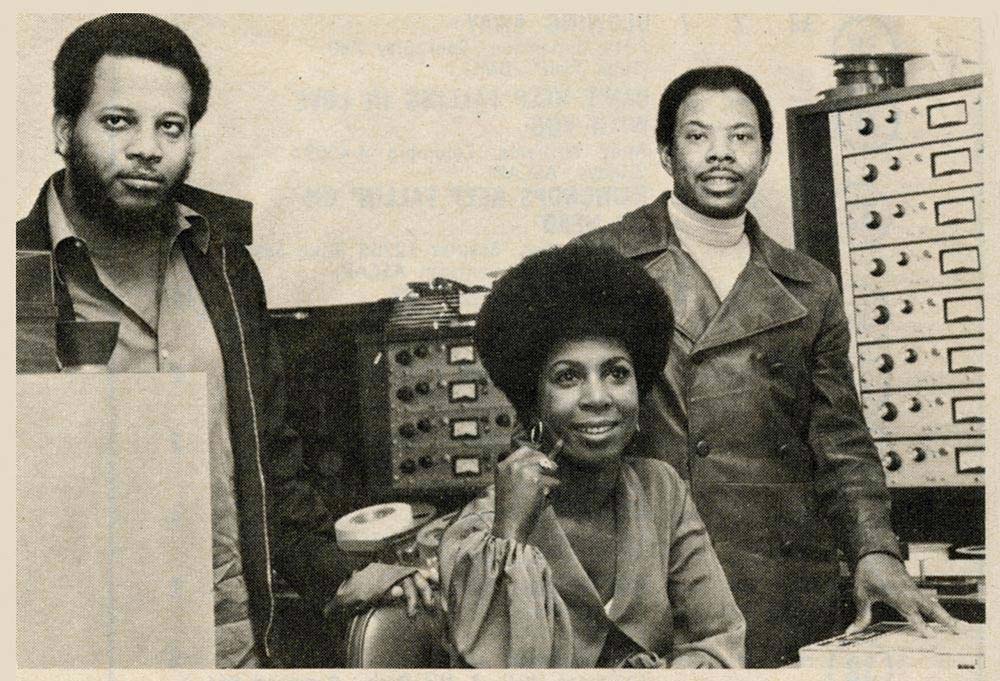
Homer Banks, Bettye Crutcher and Raymond Jackson
Before the hitmaking duo arrived in Memphis for the session, however, Porter—sent at the behest of Stewart—attempted to influence Banks and co-writers Johnny Keyes and Packy Axton to sell their publishing rights to the song, to which Axton objected. Estelle Axton provided crucial assistance again, soon after, when she spoke up on Banks’ behalf, along with Allen Jones, after the two had written “Ain’t That Loving You (For More Ways Than One).” Axton and Stax promotions man Al Bell vouched for the song’s commercial value with other Stax executives. Similarly, Stewart sent David Porter with a contract that would allow the company to own the song outright. Intervening a second time in the interest of Banks’ songwriting career, Axton acted as an intermediary, preserving Jones and Banks’ rights. The ordeal led to Johnnie Taylor recording the song in 1967 and Banks receiving a contract as a staff songwriter soon after.
With Raymond Jackson returning home from his own tenure with the military in 1968, Banks reunited with his childhood friend and collaborator, penning Johnnie Taylor’s “Next Time.” And the two of them would soon find themselves working closely with another budding songwriting talent who’d found early success within the company by pairing her writing talent with Johnnie Taylor’s sophisticated and sensual soul.
Bettye Crutcher grew up in Memphis with an early knack for poeticism. Known among friends to write constantly, she took up a dare to find something to do professionally with her passion. A single mother and nurse, she’d work all day, put her kids to bed, and find herself in studios across town until the early morning. Brushed aside by the staff at Hi Records, Crutcher nailed an audition with Deanie Parker at Stax but had just missed Parker upon her arrival. David Porter, instead, sat in to give her material a listen. During the meeting, he deemed Crutcher’s songs lacking in the bluesy feel that made Stax’s music pop in the R&B marketplace.
Taking the criticism, she returned with “Somebody’s Sleeping in My Bed,” which Johnnie Taylor recorded in 1967. Porter, who led Stax’s songwriting efforts, paired Crutcher with Booker T. Jones, though the collaboration never resulted in chemistry or any hits. Crutcher decided alternatively to work with whoever was willing, often finding she’d be scarcely taken seriously by her male counterparts. While making the rounds, she’d worked with Marvell Thomas, Bobby Manuel, Steve Cropper, Allen Jones, and eventually the two men with which she’d make her biggest impact in the company.
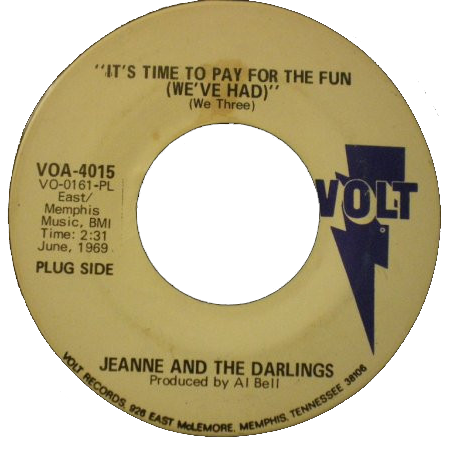 Combining her talents with Banks and Jackson, Crutcher aided in the development of “Who’s Making Love,” a song inspired by a Frank Sinatra television special Jackson saw in which the iconic crooner performed “Who Takes Care of the Caretaker’s Daughter (While the Caretaker’s Busy Taking Care).” When the song came together, the trio shopped it to artists and producers within the label, who all winced at its overtly sexual subject matter. Stax newcomer, Don Davis, a producer from Detroit with a fresh take unlike the core group of producers including Booker T. & The MGs, Isaac Hayes, and David Porter, decided that he’d take the song on, leaning into its cheeky perspective on relationships. Davis encouraged the song’s female-centric perspective, highlighting how women can have the upper hand in relationships. In addition to co-writing the single, Jackson joined Steve Cropper and Don Davis on guitar during the song’s sessions.
Combining her talents with Banks and Jackson, Crutcher aided in the development of “Who’s Making Love,” a song inspired by a Frank Sinatra television special Jackson saw in which the iconic crooner performed “Who Takes Care of the Caretaker’s Daughter (While the Caretaker’s Busy Taking Care).” When the song came together, the trio shopped it to artists and producers within the label, who all winced at its overtly sexual subject matter. Stax newcomer, Don Davis, a producer from Detroit with a fresh take unlike the core group of producers including Booker T. & The MGs, Isaac Hayes, and David Porter, decided that he’d take the song on, leaning into its cheeky perspective on relationships. Davis encouraged the song’s female-centric perspective, highlighting how women can have the upper hand in relationships. In addition to co-writing the single, Jackson joined Steve Cropper and Don Davis on guitar during the song’s sessions.
Released to radio in 1968, the single took time to gain its footing on pop radio, but exploded on the R&B charts, hitting number one. The song worked its way to the top five of the pop chart in the U.S. By the end of the year, the song netted 850,000 copies sold before eventually selling two million copies. To that point, it was the best-selling single in Stax history. Along with various accolades associated with the song, Banks, Crutcher, and Jackson were nominated for a Grammy® Award for “Best R&B Song.”
In their time together, We Three would ascend to the top of Stax’s songwriting ranks, penning songs in various configurations, working as a whole, in duos (sans one member of the trio), or by splintering off with other collaborators.
As a whole, they are responsible for Johnnie Taylor’s “Take Care of Your Homework,” which reached number two on the R&B charts, as well as Taylor’s “I Could Never Be President.” They contributed to Jeanne & The Darlings with “It’s Time To Pay For the Fun (We’ve Had)” in 1969. In the same year, the group wrote “Soul-A-Lujah,” which was performed by an ensemble of several prominent artists on Stax’s roster, including Taylor, William Bell, and Mavis Staples.
However, as Crutcher opened up to work with other co-writers, such as Allen Jones and Bobby Manuel, Banks and Jackson began working closely with a new third collaborator, Carl Hampton.
Banks, Jackson, and Hampton garnered success with The Emotions, The Soul Children, and Luther Ingram, who recorded their tune “If Loving You Is Wrong (I Don’t Want to Be Right),” in 1972. The songwriters originally intended for the song to be sung from the female gaze, hoping to place it with The Emotions, in 1970. The track would re-emerge with Ingram following a wayward attempt to record it with Veda Brown. In the time after its release, the song topped the R&B chart for four weeks and peaked at number three on the pop charts.Most notably The Staple Singers, who already recorded Homer Banks’s “Long Walk to D.C.,” in one of their earliest Stax sessions in 1968, leaned on Hampton, Jackson, and Banks, for several songs on the 1973 album Be What You Are. The album included the single “If You’re Ready (Come Go With Me),” a spiritual successor to “I’ll Take You There.” The song sat atop the R&B charts for three weeks and broke the Top 10 in pop. Tragically, Raymond Jackson would not see the song’s success, as he died in a fire-related accident in his backyard just after its initial recording session.
In 1974, Crutcher stepped up into the spotlight, after years of serving other artists as a songwriter, releasing her one and only LP, the folk-soul offering Long as You Love Me (I’ll Be Alright), albeit to little fanfare. Around the same time as the album’s release on Stax’s Enterprise imprint, Shirley Brown recorded a handful of compositions from Crutcher’s solo debut on her album Woman to Woman, released on Truth Records. Stax also entrusted a film project to Crutcher’s hands, as she teamed up with Dale Warren and Mack Rice to complete the soundtrack for the 1974 feature The Klansman.
Disbanding effectively after Raymond Jackson’s tragic death in 1972, Homer Banks and Bettye Crutcher continued productivity as go-to songwriters in the Southern soul circuit well after Stax’s doors closed, in 1975.
– Jared Boyd
The Songwriters Series ARCHIVE

Frederick Knight
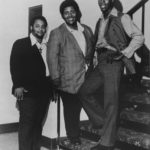
Rance Allen

The Mad Lads
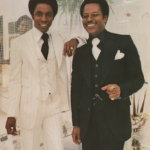
Carl Hampton and Homer Banks

Eddie Floyd and Al Bell

William Bell and Booker T. Jones

Eddie Marion, James Banks, and Henderson Thigpen

We Three (Bettye Crutcher, Raymond Jackson & Homer Banks)

Eddie Floyd and Steve Cropper

Booker T & the M.G.’s

Steve Cropper and Otis Redding



